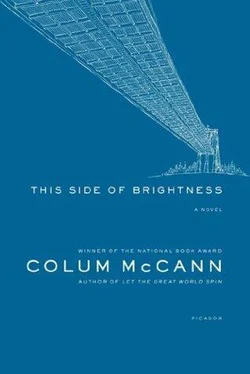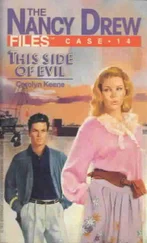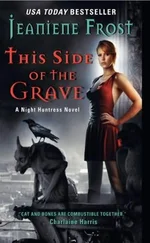“I didn’t ask you,” says Maura.
“And ya didn’t not ask me, neither.”
“I mean,” she says, “in some places it’s not legal.”
“Not New York,” says Power.
Maura touches the lace at her neck, fingers it for a long time. “In some places you go to jail. In some places they’ll kill you.”
“Illegal don’t mean it’s not right.”
“Well, that’s true,” says Maura.
“So we agree?” says Power.
“Perhaps we’ll agree to disagree.”
“I knew we’d agree on something,” mutters Power.
“Shut up, Sean!” says Walker. “Let the lady say what she has to say.”
A silence permeates the room. Power slugs at the bottle of champagne and passes it to Vannucci, who doesn’t drink. The fortune-teller goes to the window, looks out.
“We love each other, Mom,” says Eleanor eventually.
“It’s not always enough.”
“It’s enough for us.”
“You’re young.”
“Walker here ain’t exactly sprung chicken!” says Power.
Looking around again, Maura says, “And I don’t know how Con would feel about this either, but I guess I’ll just have to wait for heaven and see then. I’m not so sure he’d be happy. I’m not so sure I’m happy. I’m not so sure anybody’s happy.”
“I’m happy!” shouts Power.
Walker darts a look at his friend, then shifts his stance. “We ain’t out to make you unhappy, ma’am.”
“You gotta remember,” she says, “it’ll be hard times for you even when it’s good times.”
“We know that. Thank you, ma’am. Maura.”
“Well. I said what I wanted.”
“Thank you.”
“Now I’d like a little drink, please.”
“Forgetting my manners,” says Walker.
Maura wets her lips at the edge of a glass of champagne. “Good luck to you both, I suppose.” Putting down the glass, she turns to leave, but at the door she hangs her head and says, “Maybe you’ll be good together. Maybe you’ll be okay.”
“You think she means it?” asks Walker, when the door is closed.
“Of course she does,” says Eleanor. “She gave us the piano, didn’t she?”
“She’s a fine woman. The finest of fine women.”
“All right, then,” says Power, swinging his cane. “Let’s dance!”
“You the dancingest cripple I ever seen!” says the fortuneteller, moving away from the window, swirling her hips.
“You bet ya.”
And then Power roars, “Let the jelly hit the fan, boys!”
The group raises a toast to long life and happiness, and, to the beat of Sean Power’s imaginary trumpet, the newly married couple flaps a crazy dance, all arms and legs, on top of the piano late into the night. Walker winks at Eleanor as he stands on one foot and stretches out his arms.
* * *
A series of bricks greet them through the bedroom window, leaving shards of glass on the floor and a hole in the frame until they simply just tape up a sheet of plastic to slap in the wind. One of the bricks is wrapped in a note that reads NO PENGUINS ALLOWED. Another says SILKS OUT. Another says, simply, NO.
Walker pays for the damage to the windows and rents an apartment higher up, unreachable from the street by stone or rock. He knows it would be much worse elsewhere; in other parts of the city they would end up dead. He feels as if he has exiled himself to the air, but he knows there is safety for Eleanor in the exile.
Marriage has brought to him the things that it marries: temperance and bitterness, love and disaffection, fecundity and bareness, longitude and its own startling finality. So he leaves the stone throwers alone and drags everything upstairs to the new apartment, even the piano.
It is a larger room, the sunlight exposing gaps in the wooden floorboards, yellow wallpaper peeling off the walls, iron-colored water stains around the kitchen sink. They still share a toilet with other tenants. The floorboards of the corridor creak when they walk toward it.
Eleanor throws her toothbrush out one morning when she leaves it at the sink by mistake. She has seen legions of cockroaches crawling around the bathroom.
Next door to them lives a cornet player, and his deep notes sound out at all hours of the night. He plays with a truncated rhythm, waking up at the weirdest times. And in the morning when they walk past his room he hisses at them through the gap under the door: Penguins, he says, fucking penguins. Eleanor has developed a special walk through the apartment — she calls it the Antarctic Shuffle — and she laughs when she does it: her feet flatfooted and her ass sticking out, her elbows tucked in by her waist, and her hands flapping out at her side. But late at night she curls up in bed and cries at the thought of slices of glass landing on their bed, ripping open their naked flesh. And so Walker tells her things that help her sleep, things he invents and remembers and, by remembering, invents.
* * *
“I weren’t much more than a shirttail, see, and I wanted to make myself a gator-skin wallet. I’d seen lots of boys at school with wallets from gators. So I told my momma. She had herself a shotgun and I asked her for a loan of it. I said I was gonna shoot myself a gator so’s I could make that wallet. And she said, Y’all can’t shoot a gator, I done told you that before, Nathan; it ain’t right to hurt nothing.
And I says, Momma, it’s no different’n a cow. So she looks at me all Momma-like and smiles. No different’n a cow! she says.
Big ol’ voice. She had a big ol’ voice right up till she died.
Anyways. Next day she takes me out in the canoe, and I’m the one paddling. Right over near a place called Cow Island. We wait a long time by the swamp, her and me, and all I could see was gator eyes. And this one gator, he’s lying in the mud, all quiet like. Then this heron flies low over the water and lands nearby. The gator just ups and swishes his tail and knocks the heron clean dead. Eats it up. And so Momma, she turns to me and says, Well then, son, y’all ever seen a cow do that? ”
* * *
On Sunday mornings they walk together to a Southern Baptist service in a basement by Saint Nicholas Square. If the streets are quiet they walk hand in hand. But if they hear a car come behind them, or a window opening, or voices around a corner, they unclasp and part like two rivers. Eleanor likes to arrive at the service a little late so the great lift of gospel music greets her when she pushes open the door. She feels comfortable here. The preacher’s voice goes up and down, a wild landscape of vowels and consonants. Sometimes he punches his hands toward the ceiling, and after services he kisses all the women on the cheek, even Eleanor.
On a late spring morning she is baptized in a tub of cold water near the basement stairs. The choir, in white tunics trimmed with gold, stands around and sings. The preacher rolls up his sleeves. A chorus of hallelujahs is raised when he dunks Eleanor in the bath. Embarrassed by the white dress against her skin — the wetness exposes her girdle — she folds her arms across her breasts, but the preacher whispers, “You look like an angel, pull back them wings.” She sits up in the tub and laughs. The choir rings out in song again, and afterward the congregation munches on potato salad and well-cut sandwiches.
She and Walker stroll home in the heat, and her dress is almost dry by the time she turns the key in the door.
In the Catholic church downtown where she used to go there were dark mutterings from the white people in the pews, even though Walker never went there with her. The priest grew red-faced and shook his finger at her, all resentment and narrow eyes and acrimony. He banned her from the services when Eleanor suggested to him that Jesus was, more likely than not, much darker than He was ever allowed to look on the cross.
Читать дальше












